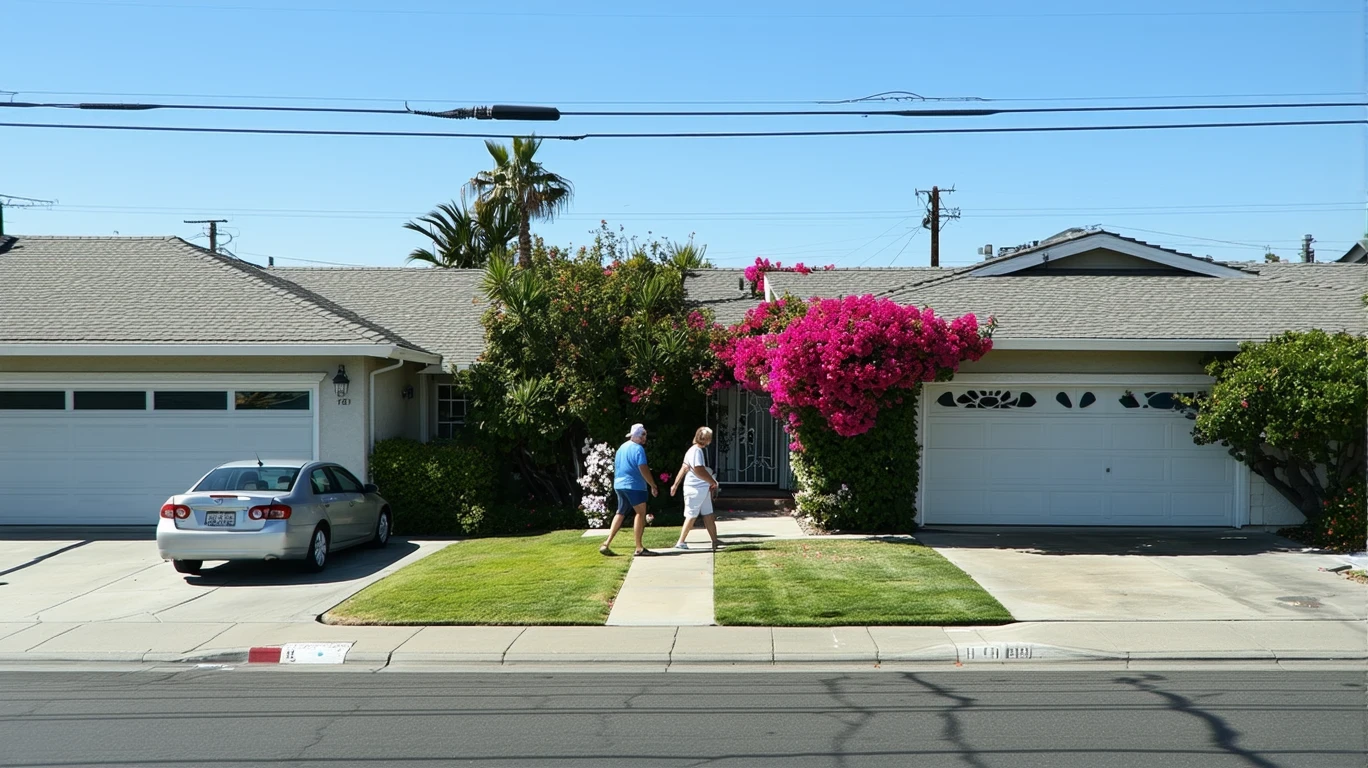Fountain Valley, CA vs. Santa Ana, CA: Cost of Living Comparison (2025)
Which city gives you more for your money – Fountain Valley or Santa Ana? This article provides a detailed cost of living comparison to help families relocating, professionals choosing between job offers, or anyone comparing the real-life costs of these two Orange County cities in 2025.

Housing Costs
Housing is typically the biggest factor in cost of living. Here’s how Fountain Valley and Santa Ana stack up for common housing options:
| Housing Type | Fountain Valley | Santa Ana |
|---|---|---|
| 2BR Apartment (Monthly Rent) | $2,400 | $2,100 |
| 3BR Home (Median Price) | $1.1M | $750K |
🏆 Winner: Santa Ana. Housing costs, both for renting and buying, tend to be 10-20% lower in Santa Ana compared to Fountain Valley.
Utilities and Energy Costs

Utility costs are fairly similar between the two cities, with average monthly bills around:
- Electricity: $120-150
- Gas: $40-60
- Water/Sewer/Trash: $80-100
Both cities have warm summers and mild winters, so seasonal cost swings are minimal. Look for off-peak usage plans to optimize your utility spending.
🏆 Winner: Tie. Utility costs are comparable between Fountain Valley and Santa Ana.
Groceries and Daily Expenses
Grocery costs are also quite similar, with Santa Ana coming in about 5% lower on average. Expect to spend around $400-500 per month on groceries for a couple.
Eating out is marginally cheaper in Santa Ana, with fast casual meals around $12-15 vs $15-18 in Fountain Valley. Fine dining is comparable.
🏆 Winner: Santa Ana, but only slightly. Grocery and dining costs are not drastically different.
Taxes and Fees
Both cities have similar property tax rates around 1.1-1.2% of assessed value. For a $750K home, that equates to $8-9K annually.
City service fees like trash and sewer are wrapped into utility bills. In Fountain Valley, HOA fees often include landscaping and exterior maintenance, adding $200-400 monthly.
🏆 Winner: Santa Ana. Lower home prices mean lower property taxes, and fewer HOAs help control monthly costs.
Cost Summary
| Category | Fountain Valley | Santa Ana |
|---|---|---|
| Housing (3BR Home) | $4,500 | $3,500 |
| Utilities | $300 | $280 |
| Groceries | $500 | $450 |
| Transportation | $600 | $500 |
| Taxes (1.2% property tax) | $1,100 | $750 |
| Misc Costs | $800 | $700 |
| Estimated Monthly Total | $7,800 | $6,180 |
A household moving from Santa Ana to Fountain Valley might expect housing costs alone to be $1,000 higher per month on average.
Lifestyle Fit
While Fountain Valley has larger lots and a suburban feel, Santa Ana offers more density and walkability. Santa Ana is about 5°F warmer than Fountain Valley in the summer months.
Fountain Valley has top-rated schools, while Santa Ana provides easier commuter access to job hubs like Irvine and Costa Mesa. Traffic noise is more noticeable in Santa Ana neighborhoods near major freeways.
Frequently Asked Questions
Q: Is Fountain Valley more affordable than Santa Ana?
A: No, Santa Ana has a lower overall cost of living, primarily due to more affordable housing. Review our full cost of living breakdown for Fountain Valley.
Q: Which city has lower rent?
A: Rental costs are about 10-15% lower in Santa Ana than Fountain Valley for comparable apartments.
Q: Where is it cheaper to buy a home?
A: Home prices in Santa Ana are roughly 20-30% lower than in Fountain Valley for similar size and quality. Compare some sample monthly budgets for Fountain Valley to estimate your costs.
The Bottom Line
Santa Ana comes out ahead on overall affordability, making it attractive for young professionals and budget-conscious families. Meanwhile, Fountain Valley’s pricier housing reflects its newer construction, upscale amenities, and acclaimed schools – ideal for high-earning households.
Ultimately, your lifestyle priorities will determine which city is the best fit. If you’re planning a move, be sure to compare moving company costs to find the most affordable options. We also recommend building a custom budget based on your income and must-haves to make a confident decision.
